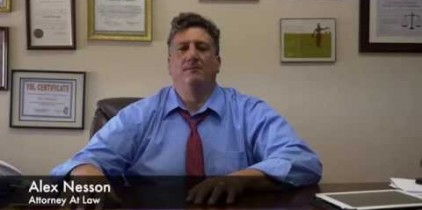Sometimes I get questions about what a DCF Assessment is. Usually what that means is a 45-day family assessment. That is the point where the Department of Children and Families (“DCF”) is involved for one or a couple of reasons.
First, is that you might have signed up for voluntary services with DCF. Second, if it has been supported after the 51A investigation was concluded; or if you were referred by the Court.
A 45-day family assessment after a supported finding; which is generally what most people that call me ask about what it means. It means that the Department of Children and Families has determined that there is reasonable cause to believe that a caregiver has abused or neglected the child or children in your care.
DCF will then assign a different worker other than the investigator who investigated the allegations under the 51A. The assessment worker will attempt to contact you to meet with you and your children. They are supposed to have 45 days; which is Monday through Friday and that essentially results to about a 3-month investigation; although, unfortunately, sometimes it ends up going longer than it is supposed to.
The assessment worker is supposed to review the case records by the investigator and any other materials; including if there are any prior cases. The worker will ask a lot of questions and again, you have an attorney and it is advised to have an attorney or at least an advocate with you to make sure that your answers won’t be misinterpreted or that you don’t say something that you should not say because, very often the questions can have a big impact on your family. Sometimes it puts you and your family under the microscope. You have the right to not meet with the assessment worker; although that is something that you would want to be careful to decide and you have the right to refuse to answer certain questions. You can also provide collateral contacts; including with people that work with you and your family and family members or other people that know you.
The assessment worker is supposed to have at least 3 face-to-face contact with the parents and other people that live in the home. Two of these are supposed to occur in the home in terms of the visits; and the children are supposed to be seen at least twice with face-to-face contacts.
Be careful if DCF says things about how you need to cooperate or they can close the case; or if not they will file something. It is important to speak to an attorney to get advice about what you should talk about in the assessment; or have your attorney present at the assessment. Every case is unique and it is not a rule where you would say that you would automatically would or would not want to speak to DCF. Some of the reasons why you might not want to speak to DCF is if the police are involved; or if there is a criminal investigation; you might choose not to talk about those particular areas of concern as well.
However, every case is different, and again in some cases it is appropriate not to speak to DCF at all. It is important if you can have someone present with you, even if you can’t afford an attorney to have a witness or an advocate with you. Sometimes people recommend having a tape recording of the interview, generally DCF is not agreeable to this and since Massachusetts is a state that requires the consent of all parties might not be a realistic possibility in most cases and it might have a down side toward that. Having an attorney with you is a strong recommendation in most cases with the only negative being if you have an experienced attorney, is the financial cost involved.







